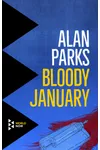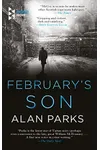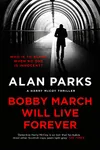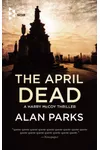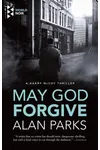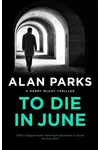Picture a Scottish storyteller who swapped music industry glamour for the gritty streets of 1970s Glasgow—meet Alan Parks! This Tartan noir maestro burst onto the crime fiction scene at 54, weaving tales of moral ambiguity and raw humanity. His Harry McCoy series captures a city of contrasts, where hard men and hidden truths collide in a haze of cigarette smoke and heroin.
Born in Elderslie, Scotland, in 1963, Parks brings a lifetime of experience to his novels. His late-blooming writing career, fueled by a love for Glasgow’s complex soul, has earned him praise as a successor to noir legend William McIlvanney. Ready to dive into his dark, thrilling world?
The Making of Alan Parks
Alan Parks didn’t start with a pen in hand. Raised in Paisley, near Glasgow, he studied Moral Philosophy at the University of Glasgow, sharpening his knack for wrestling with life’s big questions. For over two decades, he thrived in the music industry, working as Creative Director at London Records and Warner Music, managing artists like New Order and Gnarls Barkley. But a long commute between Glasgow and London sparked a new chapter. To pass the time, Parks began writing what became his debut novel, Bloody January, a gritty crime tale he initially tucked away until author Sarah Pinborough championed its publication.
Alan Parks’s Unforgettable Stories
Parks’s Harry McCoy series, set in the rough-and-tumble Glasgow of the 1970s, is the heart of his work. Each novel, titled after a month, follows Detective Harry McCoy, a flawed cop navigating a city gripped by drugs, gangs, and corruption. Bloody JanuaryFebruary’s Son (2019) deepens the stakes with a footballer’s murder, earning an Edgar Award nomination. Bobby March Will Live Forever (2020) blends rock-star tragedy with missing teens, while May God Forgive (2022) won the McIlvanney Prize for its raw depiction of Glasgow’s Royston district.
Parks’s style is visceral yet humane, blending hardboiled grit with social realism. His Glasgow is no caricature—it’s a vivid tapestry of dive bars, posh estates, and moral gray zones, inspired by real places and historical events like David Bowie concerts. Influenced by McIlvanney’s Laidlaw, Parks crafts characters who feel alive, from sadistic gangsters to weary cops, all shaped by the era’s class divides and drug epidemic.
Why Alan Parks Matters
Alan Parks has redefined Tartan noir by grounding it in 1970s Glasgow’s beating heart. His novels don’t just thrill—they explore the human cost of crime, poverty, and power. Critics like Ian Rankin and Bret Easton Ellis praise his tight, evocative prose, while readers are drawn to McCoy’s flawed heroism. By turning his music industry savvy and philosophical bent into stories that resonate globally, Parks proves it’s never too late to reinvent yourself. His work elevates Scottish crime fiction, making Glasgow a character as unforgettable as McCoy himself.
- Born: 1963, Elderslie, Scotland
- Key Works: Bloody January, February’s Son, Bobby March Will Live Forever, May God Forgive
- Awards: McIlvanney Prize (2022), Edgar Award finalist (2019)
Snag Bloody January and dive into Alan Parks’s thrilling Tartan noir world—Glasgow’s mean streets await!
